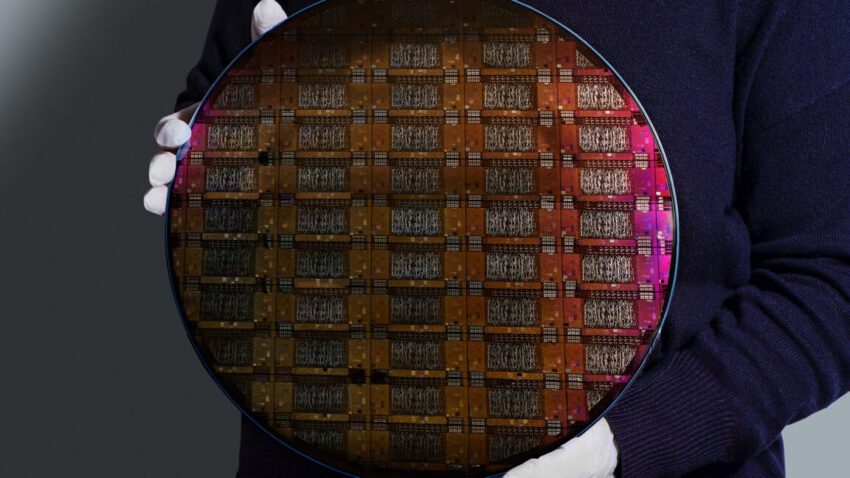
quantum computing tech keeps edging forward As the year draws to a close, significant advancements in quantum computing technology are being announced, highlighting the ongoing evolution of this transformative field.
quantum computing tech keeps edging forward
End-of-Year Announcements in Quantum Computing
The end of the year is traditionally a bustling period in the quantum computing sector, as companies rush to unveil major milestones before the calendar turns. This year has been no exception, with several key announcements made by leading firms in the industry. While not all these developments involve groundbreaking new architectures, they serve as indicators of progress and often encompass the incremental steps essential for advancing the field.
In this article, we will explore several noteworthy announcements from the past few weeks that illustrate the current state of quantum computing and its trajectory moving forward.
IBM’s New Quantum Architecture
IBM has made headlines with its announcement of a brand-new quantum architecture, a development that was anticipated following the company’s commitment to unveil new technology back in June. This week, IBM confirmed the successful construction of two processors, one of which is named Loon. This processor is particularly significant as it is designed to host error-corrected logical qubits, a critical advancement for practical quantum computing.
Key Features of Loon
Loon introduces two major changes to IBM’s quantum computing framework:
- Nearest-Neighbor Connections: This approach allows qubits to interact more efficiently with their immediate neighbors, which can enhance the speed and reliability of quantum computations.
- Long-Distance Connections: The addition of long-distance connections enables qubits to communicate over greater distances, potentially improving the scalability of quantum systems.
These advancements are crucial as they aim to address some of the fundamental challenges in quantum computing, particularly in the realm of error correction and qubit coherence. Error correction is essential for reliable quantum computations, as qubits are highly susceptible to environmental noise and other disturbances.
Other Notable Announcements
In addition to IBM, several other companies have made significant strides in quantum technology, showcasing a variety of approaches and innovations.
Google’s Quantum Supremacy Progress
Google has continued to build on its previous achievements in quantum supremacy, a term that refers to the point at which a quantum computer can perform calculations that are infeasible for classical computers. The company recently announced enhancements to its Sycamore processor, which was instrumental in demonstrating quantum supremacy in 2019.
The latest updates include improvements in qubit connectivity and error rates, which are critical for expanding the range of problems that can be effectively tackled by quantum algorithms. Google’s ongoing research aims to refine quantum algorithms and increase the practical applications of quantum computing across various fields, including cryptography, materials science, and complex optimization problems.
Microsoft’s Quantum Development Kit Enhancements
Meanwhile, Microsoft has made strides in its Quantum Development Kit (QDK), which provides developers with the tools needed to create quantum applications. The latest version of the QDK includes new libraries and improved simulation capabilities, allowing developers to test and refine their quantum algorithms more effectively.
One of the standout features of the updated QDK is its integration with Azure, Microsoft’s cloud computing platform. This integration enables users to access quantum computing resources on-demand, facilitating collaboration and experimentation among researchers and developers worldwide.
Implications of Recent Developments
The announcements from IBM, Google, and Microsoft underscore the competitive landscape of the quantum computing industry, where companies are racing to achieve practical and scalable quantum solutions. These developments have several implications for the future of technology and various sectors:
- Accelerated Research and Development: The advancements in quantum architectures and tools are likely to accelerate research in quantum algorithms, leading to breakthroughs in fields such as drug discovery, climate modeling, and financial modeling.
- Increased Collaboration: As companies enhance their development kits and cloud offerings, collaboration among researchers, developers, and businesses is expected to increase. This collaboration can foster innovation and lead to new applications for quantum technology.
- Investment in Talent: The growing interest in quantum computing is driving investments in education and training programs to cultivate a skilled workforce capable of navigating this complex field.
Stakeholder Reactions
The recent announcements have elicited a range of reactions from stakeholders in the quantum computing ecosystem, including researchers, industry experts, and investors.
Researchers’ Perspectives
Many researchers have expressed enthusiasm about the advancements made by IBM and other companies, viewing them as critical steps toward achieving practical quantum computing. Experts note that the focus on error correction and qubit connectivity is particularly promising, as these factors are crucial for the reliability of quantum systems.
Industry Experts’ Insights
Industry analysts have highlighted the competitive nature of the quantum computing landscape, emphasizing that companies must continue to innovate to maintain their edge. The race to develop scalable quantum solutions is not only about technological advancements but also about securing partnerships and investments that can drive growth.
Investor Sentiment
Investors are closely monitoring the developments in quantum computing, recognizing the potential for substantial returns as the technology matures. The increasing number of announcements and advancements has sparked interest in funding startups and established companies working in this space, as they aim to capitalize on the anticipated quantum revolution.
Looking Ahead
As we move into the new year, the quantum computing landscape is poised for further evolution. The recent announcements from IBM, Google, and Microsoft signal a commitment to overcoming the challenges that have historically hindered the field. The focus on error correction, qubit connectivity, and developer tools will likely pave the way for more practical applications of quantum technology.
Moreover, as companies continue to invest in research and development, we can expect to see an increase in collaboration across academia and industry. This collaborative spirit will be essential for addressing the complex problems that quantum computing aims to solve, from optimizing supply chains to simulating molecular interactions.
Conclusion
The end-of-year announcements in quantum computing reflect a vibrant and rapidly evolving field. With companies like IBM, Google, and Microsoft leading the charge, the advancements made in quantum architectures, development tools, and error correction techniques are setting the stage for a new era of computing. As stakeholders across the ecosystem respond to these developments, the potential for quantum technology to transform industries and solve complex problems becomes increasingly tangible.
Source: Original report
Was this helpful?
Last Modified: November 13, 2025 at 1:38 am
0 views















